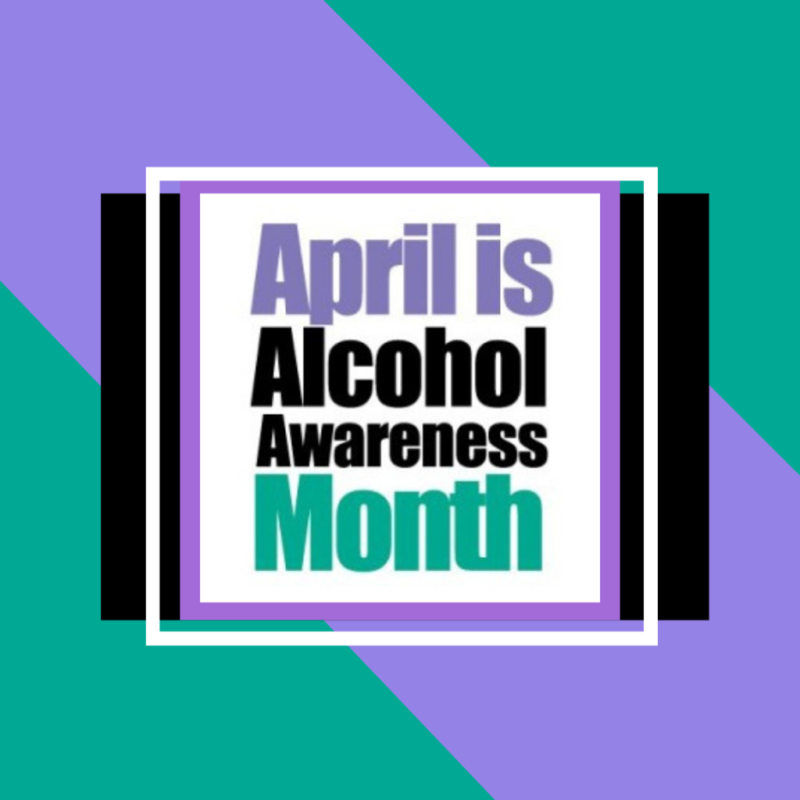Alcohol Awareness Month is a public health program organized by the National Council on Alcoholism and Drug Dependence (NCADD) as a way of increasing outreach and education regarding the dangers of alcoholism and issues related to alcohol. The program was started in April 1987 with the intention of targeting college-aged students who might be drinking too much as part of their newfound freedom. It has since become a national movement to draw more attention to the causes and effects of alcoholism as well as how to help families and communities deal with drinking problems.

The National Council on Alcoholism and Drug Dependence (NCADD)
For over 70 years, The National Council on Alcoholism and Drug Dependence, Inc. (NCADD) has been a valuable resource for millions of people struggling with alcoholism and addiction. The NCADD Website is a valuable resource for individuals seeking recovery and for families who have a loved one struggling with Alcohol Addiction. If you or a loved one needs help in finding a local provider to assist with alcohol addiction, visit the SAMHSA website.
The three creeds of the National Council on Alcoholism and Drug Dependence are:
- Alcoholism is a disease, and the alcoholic is a sick person;
- The alcoholic can be helped, and is worth helping;
- Alcoholism is a public health problem, and therefore a public responsibility.
Alcohol Use Disorder
To understand why there is an alcohol awareness month, you must first understand the disease itself. The true term for alcohol abuse is Alcohol Use Disorder. Alcohol Use Disorder is an affliction that can be observed if you use alcohol to the point where it becomes an issue. Many are not aware that alcohol abuse can come in several different forms, including alcoholism but is not limited to only that. One of the most common forms of Alcohol Use Disorder – especially amongst young people – is binge drinking.
In addition to NCADD, the organization listed below are a good source of information about Alcohol Use Disorder and about how and where to obtain help.
National Institute on Alcohol Abuse and Alcoholism (NIAAA)
According to the National Institute on Alcohol Abuse and Alcoholism (NIAAA) Facts and Statistics, each year, an estimated 88,000 people die from alcohol-related causes annually and in 2019 alcohol-impaired driving fatalities accounted for 31% of overall driving fatalities (9,967 deaths). Unfortunately, these deaths could have been avoided, making alcohol the third leading preventable cause of death in the United States.
NIAAA mission is to generate and disseminate fundamental knowledge about the effects of alcohol on health and well-being. They seek to apply that knowledge to improve the diagnosis, prevention, and treatment of alcohol-related problems, including alcohol use disorder, across the lifespan. For nearly 50 years, NIAAA has been at the forefront of cutting-edge alcohol research. This work has significantly expanded the understanding of how alcohol affects the brain and body and has led to better interventions to prevent and treat alcohol misuse and related conditions.
Sadly, alcohol use disorder is still viewed by many as a moral failing or character flaw, rather than a chronic brain disease from which people can, and do, recover. Many people are not aware that there are effective treatments for alcohol use disorder; and personalized treatments are an exciting, attainable goal. Learn more about preventing alcohol misuse, improving the diagnosis of alcohol use disorder, and developing new treatments for these conditions on the NIAAA Website.
National Institute on Drug Abuse (NIDA)
The mission of the National Institute on Drug Abuse (NIDA) is to advance the science on the causes and consequences of drug use and addiction and to apply that knowledge to improve individual and public health. NIDA is the largest supporter of the world’s research on drug use and addiction. NIDA-funded scientific research addresses the most fundamental and essential questions about drug use, including tracking emerging drug use trends, understanding how drugs work in the brain and body, developing and testing new drug treatment and prevention approaches, and disseminating findings to the general public, researchers, policymakers, and others.
NIDA is a great sources of information on Alcohol Disorder as it regularly releases data that shows the long term and short term effects of alcohol use.
Alcoholics Anonymous
Alcoholics Anonymous (AA) is the first and most common resource people turn to for assistance with alcohol addiction recovery. The reason this group has gained so much popularity is because it is run by a community of recovering alcoholics. They too have been where you are now and will understand better than anyone what you need to her. They have free meetings in almost every city or town around the country. Their 12 step process will give you an optimistic, driven path to follow on the road to recovery.
Al-Anon and Alateen
Al-Anon and Alateenare great resources for friends and family members seeking to help a loved one struggling with alcohol addiction. In Al-Anon and Alateen, members share their own experience, strength, and hope with each other. They come together to learn a better way of life and to find happiness whether the individual struggling with alcohol addiction is still drinking or not.
Spread the word
While a month is not enough time to educate and help everyone affected by alcohol recover, it is a good way to further the conversation about alcohol misuse. The most important thing we can do as a society is to recognize that there is a problem. Only with that realization can we move forward.
